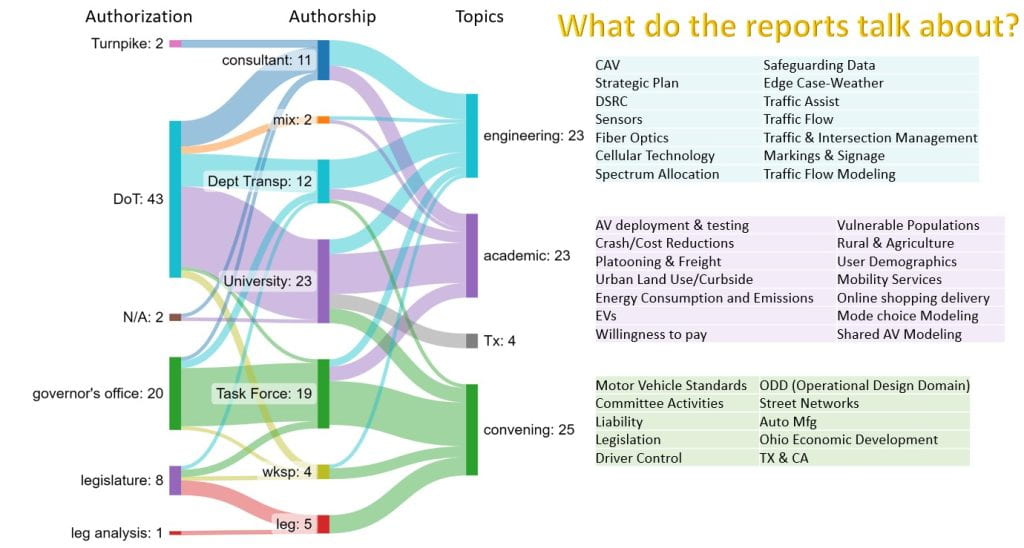Overview
The quality of information in the public sphere and its dissemination is of increasing concern, nevertheless large parts of the information ecosystem continue to function very well. However, lacking a crisis narrative the functional aspects of the system have not been studied much, limiting our capacity to protect and develop existing strengths.
The anticipated arrival of autonomous vehicles (AVs) created considerable uncertainty for states in charge of roads. To adjust to the new technology, state agencies and legislatures needed to understand where this technology was going. States wrote reports to learn about AV technology and its implications. We analyzed those reports to understand how states use evidence to learn about a new platform technology in preparation for governance. We searched for reports on autonomous vehicles commissioned by states identifying 75 reports produced by 33 states between 2014 and 2021. We collected the PDFs, classified the 2,600 images and 3,100 references, cataloged 1,200 contributors and their affiliations, and identified the main topics discussed in the reports.
We find that university-authored reports are longer and more heavily referenced. Both university and DoT authored reports favor graphs and tables over pictures of cars and roads, whereas task force reports do the reverse. The reports also emphasize different types of topics: analytical and socioeconomic in university-authored reports, governance topics in task force reports, and engineering topics in DoT reports.
States used two types of processes to learn about AVs convening and expert, and two types of expertise were employed, academic and practical. In the convening approach, the governor establishes a committee of stakeholders. In the expert approach, the Department of Transportation (DoT) writes a strategic plan for AV adoption or commissions university researchers to analyze the future of autonomous vehicles.

Investigators
Professor Kimberley R. Isett – Joseph R. Biden, Jr. School of Public Policy and Administration, University of Delaware
Professor Diana Hicks – School of Public Policy (Georgia Tech)
Professor Gordon Kingsley – School of Public Policy (Georgia Tech)
Sponsor
U.S. National Science Foundation, Award # 2001455
For more information contact: Diana Hicks, dhicks@gatech.edu
